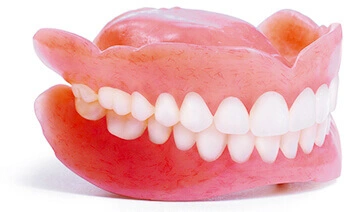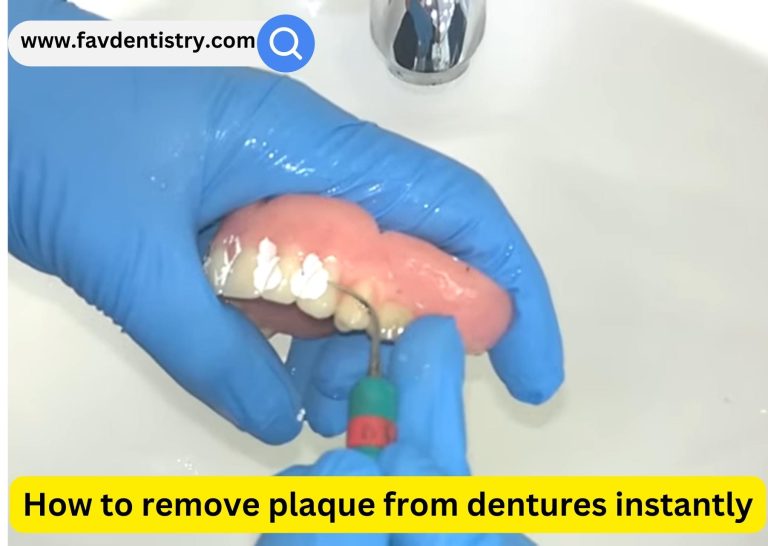Last Updated on 3 weeks by DR. ALBIN SIPES
Lower dentures can be challenging to keep in place due to issues with stability and movement. Wearing lower dentures can prove to be quite a task as they tend to be less stable and prone to movement.
This can make it harder to keep them securely in place, causing discomfort and potential difficulty with speaking and eating. Dental adhesives or implants can be used to enhance the fit and stability of lower dentures, ensuring a more comfortable and confident experience for the wearer.
Understanding the unique challenges associated with lower dentures is essential for individuals considering this dental solution. In this article, we will explore the difficulties that can arise with lower dentures and discuss potential solutions to help keep them in place effectively.
Causes Of Lower Denture Instability
Are Lower Dentures Hard To Keep In?
Lower dentures can sometimes be a challenge to keep in place, causing discomfort and inconvenience for those who wear them. There are several factors that can contribute to the instability of lower dentures. Understanding these causes can help denture wearers navigate these challenges and find solutions for a more secure fit.
Jawbone Resorption
One common cause of lower denture instability is jawbone resorption. Over time, the jawbone can shrink or deteriorate, which can result in a change in the shape of the mouth and lead to difficulty in keeping dentures in place. The reduction in bone density can cause the dentures to become loose and unstable, making it harder to speak and eat comfortably.
- Changes in facial structure
- Decreased bone density in the jaw
- Shrinkage of the jawbone over time
Changes In Facial Structure
Changes in facial structure can also contribute to the difficulty of keeping lower dentures in place. As we age, our facial muscles can weaken, causing a loss of support for the dentures. This can result in dentures slipping or shifting, leading to discomfort and a lack of confidence in social situations.
- Weakening of facial muscles
- Loss of support for dentures
- Dentures slipping or shifting
Poor Denture Fit
Another important factor in lower denture instability is the fit of the dentures themselves. Ill-fitting dentures can result in discomfort and difficulty in keeping them in place. Poorly designed dentures may not provide sufficient suction or grip, leading to constant readjustment and frustration for the wearer.
- Ill-fitting dentures
- Lack of suction or grip
- Constant need for readjustment
Lower denture instability can be caused by jawbone resorption, changes in facial structure, and poor denture fit. These factors can lead to discomfort and difficulty in maintaining a proper fit for denture wearers. However, understanding these causes can help individuals find appropriate solutions and improve their overall denture-wearing experience.
Improving Denture Stability
Are Lower Dentures Hard To Keep In?
Dentures are an effective solution for many individuals who have lost their natural teeth. However, lower dentures can pose some challenges in terms of stability and staying in place. If you’re finding it difficult to keep your lower dentures secure, there are several options you can explore to improve their stability.
In this blog post, we’ll discuss some key strategies, including consultation with a dentist, the use of denture adhesives, relining or rebasing of dentures, and implant-supported dentures.
Consultation With A Dentist
- Seeking professional advice from a dentist can greatly help in addressing the stability issues of lower dentures.
- Dentists have in-depth knowledge and experience in working with dentures, and can provide personalized guidance tailored to your specific needs.
- During a consultation, your dentist will evaluate the fit of your dentures and determine if any adjustments are necessary.
- They will also assess the health of your gums and jawbone, as these factors can affect denture stability.
- By discussing your concerns with a dentist, you can gain valuable insights and recommendations for improving the fit and stability of your lower dentures.
Use Of Denture Adhesives
- Denture adhesives can be a useful tool in enhancing the stability of lower dentures.
- These adhesives come in various forms, including creams, powders, and adhesive pads.
- When applied to the surface of the dentures, they create a bond between the dentures and your gums, providing added grip and support.
- Denture adhesives can help prevent slippage and movement, making it easier to keep your lower dentures in place when speaking or eating.
- However, it’s important to follow the instructions provided by the adhesive manufacturer and consult with a dentist if you have any concerns.
Relining Or Rebasing Of Dentures
- Over time, the shape of your gum ridge may change, affecting the fit of your lower dentures.
- Relining or rebasing involves modifying the base of the dentures to ensure a better fit.
- Relining involves adding a new layer of material to the underside of the denture base, while rebasing involves replacing the entire base.
- Both procedures can improve the stability and comfort of your lower dentures, as they are designed to better adapt to the changes in your mouth.
- It’s important to consult with a dentist to determine if relining or rebasing is a suitable option for you.
Implant-Supported Dentures
- For individuals who desire a more permanent solution, implant-supported dentures may be a viable option.
- This dental implant procedure involves the placement of implants in the jawbone, which serve as anchors for attaching the dentures.
- Implant-supported dentures offer superior stability compared to traditional dentures, as they are securely attached to the implants.
- These dentures allow for better chewing efficiency and can restore a natural appearance.
- However, it’s important to note that implant-supported dentures require a surgical procedure and a longer treatment timeline.
Improving the stability of lower dentures is crucial for comfortable wear and optimal functionality. By consulting with a dentist, considering the use of denture adhesives, exploring relining or rebasing options, or opting for implant-supported dentures, you can take proactive steps to enhance the stability and overall experience of wearing lower dentures.
Remember to consult with a dental professional to determine the most suitable solution for your individual needs.
Tips For Maintaining Lower Denture Stability
Are Lower Dentures Hard To Keep In?
Having lower dentures can be a life-changing solution for individuals with missing teeth. However, it’s not uncommon to hear concerns about the stability of lower dentures. Many people worry about their dentures slipping or moving around, leading to discomfort and self-consciousness.
If you’re one of those individuals, fear not! With proper care and maintenance, you can ensure that your lower dentures stay securely in place. In this blog post, we will discuss some essential tips for maintaining lower denture stability.
Regular Cleaning And Maintenance
To keep your lower dentures securely in place, regular cleaning and maintenance are crucial. Here are some key points to remember:
- Remove your dentures every night and clean them thoroughly with a denture brush and mild soap or denture cleaner.
- Rinse your dentures after eating to remove any food particles or debris.
- Brush your gums, tongue, and palate with a soft toothbrush every morning before inserting your dentures.
- Soak your dentures overnight in a denture cleaning solution to help remove tough stains and bacteria.
Avoiding Sticky And Hard Foods
Certain types of foods can pose a challenge to denture stability, especially for lower dentures. Consider the following points:
- Avoid sticky or chewy foods such as caramel, taffy, or chewing gum, as they can dislodge your dentures.
- Opt for softer food options, like cooked vegetables, tender meats, or mashed potatoes, to avoid putting excessive pressure on your dentures.
- Cut your food into smaller, bite-sized pieces to make chewing easier and reduce the risk of denture movement.
Proper Denture Hygiene
Maintaining good denture hygiene is essential for promoting overall stability. Keep these key points in mind:
- Handle your dentures with care to avoid dropping or damaging them.
- Brush your dentures daily using a soft-bristled brush and a non-abrasive denture cleanser to prevent plaque buildup and stains.
- Avoid using hot water to clean your dentures, as it can cause warping.
- Store your dentures in a container filled with water or denture solution when you’re not wearing them to prevent them from drying out.
Regular Dental Check-Ups
Regular dental check-ups play a crucial role in maintaining the stability of your lower dentures. Consider the following:
- Visit your dentist at least once a year for a comprehensive examination of your dentures.
- Your dentist will inspect your dentures, ensure proper fit, and make any necessary adjustments.
- If your dentures become loose over time, it may be necessary to have them relined or replaced to maintain optimum stability.
By following these tips for maintaining lower denture stability, you can confidently enjoy all the benefits of your dentures without worrying about them slipping or moving around. Remember, proper cleaning and maintenance, avoiding sticky and hard foods, practicing good denture hygiene, and scheduling regular dental check-ups are the keys to a stable and comfortable denture-wearing experience.
Frequently Asked Questions For Are Lower Dentures Hard To Keep In
How Difficult Is It To Keep Lower Dentures In Place?
Keeping lower dentures in place can be challenging due to lack of natural suction. However, using denture adhesives or considering implant-supported dentures can greatly improve stability and retention.
Are Lower Dentures Prone To Shifting Or Moving?
Yes, lower dentures can be prone to shifting or moving while eating, speaking, or laughing. This is because the lower jaw bone is narrower and the tongue muscles can exert force on the denture. Using denture adhesives can minimize movement.
Can I Eat Normally With Lower Dentures?
Eating with lower dentures might require some adjustments and patience. Start with soft or small pieces of food, chew slowly on both sides, and avoid sticky or hard foods. Over time, you will regain confidence and enjoy a varied diet.
Can Denture Adhesives Help With Keeping Lower Dentures Secure?
Yes, denture adhesives can enhance the stability and retention of lower dentures. They create a seal between the denture and gums, reducing movement and improving comfort while speaking and eating.
Are Implant-Supported Dentures A Better Option For Lower Dentures?
Implant-supported dentures provide superior stability and retention compared to traditional lower dentures. Dental implants act as anchor points for the denture, offering enhanced chewing efficiency and preventing shifting or slipping. Discuss this option with your dentist to determine if you are a candidate.
Conclusion
Lower dentures can be challenging to keep in place due to factors such as bone loss, lack of stability, and difficulty with retention. However, there are several solutions available to improve the fit and comfort of lower dentures. One option is to consider implant-supported dentures, which provide a more stable and secure fit by attaching the dentures to dental implants in the jawbone.
Another alternative is to use denture adhesives, which can provide additional grip and reduce slippage. Additionally, regular visits to the dentist for adjustments and necessary repairs can help maintain the functionality and longevity of lower dentures. It is also crucial to maintain good oral hygiene habits and clean the dentures properly to prevent infections and discomfort.
Remember, with the right care and attention, you can overcome the challenges of keeping lower dentures in place and enjoy a confident smile and improved oral function.





